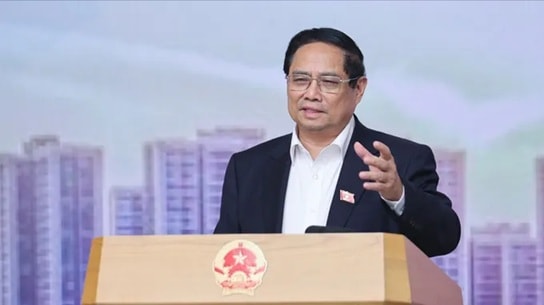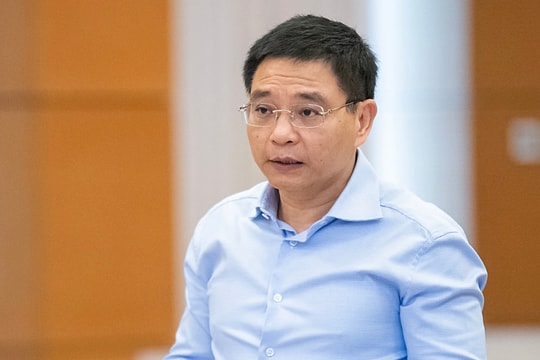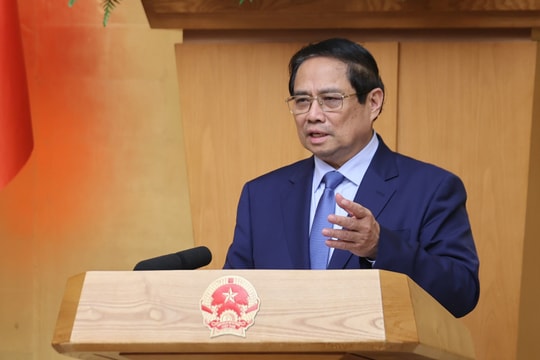Decentralization and delegation of power: A tectonic turning point in national governance
June 2025 marked a rare event in our country's administrative history: The Government simultaneously issued 28 decrees on decentralization and delegation of power to local governments.

This is not just an administrative technical move, but a profound institutional reform, demonstrating a strong innovative mindset in national governance. If implemented seriously and synchronously, this can become a turning point paving the way for a modern, effective and efficient administration – as aspired by the Party, the State and our people.
Oneunprecedented effort
The simultaneous issuance of 28 decrees on decentralization and delegation of powers is the result of a process of reviewing the huge amount of tasks and powers of ministries, branches and authorities at all levels. According to official statistics, 6,738 tasks and powers have been reviewed, of which 2,718 key tasks have been proposed to be clearly defined: 1,470 tasks have been decentralized to local authorities; 1,248 tasks have been divided between provincial and communal levels.
This is not just a number – but a testament to a persistent, tenacious and very systematic effort to resolve the situation of “the central government doing things for us”, “localities waiting for instructions”, and the situation of “asking and giving” that has lasted in many fields.

PrivateNew thinking: Delegation to create force
From an institutional perspective, decentralization and delegation of power are the clearest manifestations of governance under the constructivist model. In this, instead of keeping power in the central government, the State proactively “shares power” with local authorities – so that they are closer to the people, understand them better and act faster.
Decentralization is not only “empowerment”, but also “assignment of responsibility”. Local authorities are now not only “executors of administrative orders” but also become the subjects of action, innovation and results.
In particular, this reform has placed the commune level at the center of decentralization, not stopping at the provincial level as before. This clearly reflects an inevitable trend:The closer to the people, the more effective the administration.– if and only if the commune level has sufficient capacity and tools to act.
Fertilizerstrong – but not arbitrary
It is noteworthy that the decrees are not simply “administrative delegations”, but mainly decentralization and decentralization of power, with specific and clear regulations on tasks, scope, responsibilities and monitoring mechanisms. This model helps avoid overlapping, pushing and shirking of responsibilities – which are inherent weaknesses in the current administrative apparatus.
Decentralization without supervision can easily lead to arbitrariness. But supervision without decentralization can lead to congestion and inefficiency. Therefore, the simultaneous issuance of 28 decrees shows that the Government has tried to achieve a balance between autonomy and discipline, between dynamism and control.

Thosenot a small challenge
However, if we want this turning point not to become a "misstep", we need to frankly acknowledge the challenges ahead:
First, enforcement capacityThe capacity of local authorities is still very different. Some places are capable of taking on new tasks, but others are weak in human resources, lack finance, and are confused about how to do things.
Second, the institutions supporting decentralization are not yet synchronized.. If power is decentralized but the budget, human resources, and monitoring system are not yet allocated, then power is only “allocated on paper”. As Prime Minister Pham Minh Chinh has repeatedly emphasized, decentralization and delegation of power must go hand in hand with resource allocation, improving the implementation capacity of subordinates, and designing tools to strengthen inspection and monitoring.
Third, the mentality of being hesitant and afraid of responsibility is still common.Many local officials are used to following instructions, not making decisions and taking responsibility. Without changing their mindset, decentralization is just a formality.
Prizemethods to decentralize power without falling into a rut
To make this huge volume of decrees truly come into life, many solutions need to be synchronized:
1. Improve the capacity of local staff:It is impossible to delegate power to those who are not capable. It is necessary to invest heavily in training and improving the quality of civil servants, especially at the commune level - where many new tasks are being taken on.
2. Perfecting financial and budgetary institutions:There needs to be a mechanism for localities to be autonomous in spending and exploiting local resources, while ensuring publicity and transparency.
3. Strengthen inspection, monitoring and evaluation of results:Not to monitor to withdraw power, but to adjust – to encourage good performance, to correct poor performance. It is necessary to build an evaluation system based on output results (KPI) instead of just input procedures.
4. Innovation in leadership and management thinking throughout the system:The Central Government cannot keep the habit of “holding on to power”. Localities cannot keep the habit of “asking superiors”. Decentralization is only effective when the entire system is unanimous, comradely, synchronous, uniform, and simultaneous, as stated by the Prime Minister at the Conference on June 14.

Rangefar-sighted - public administration
It can be said that the simultaneous issuance of 28 decrees is a historic effort. It not only solves the current problems of the administrative apparatus, but also lays the foundation for a modern, effective and people-friendly governance model.
If successful, this will be the first step towards a solid two-tier local governance model, paving the way for streamlining the apparatus, reducing intermediary levels, and improving management capacity at the root – where people directly access the government.
In the context of the country entering an era of in-depth development, with expectations of strength, self-reliance and prosperity, reforms like this are the key to opening up the future.
The transfer of power is not just about organization – it isonedeclaration of faith.Trust in local government, in the capacity of the system and above all in the country’s ability to be self-reliant and self-reliant. It is time to trust and empower – so that all levels of government can work together to build a strong, prosperous Vietnam, with a happy and prosperous people.






